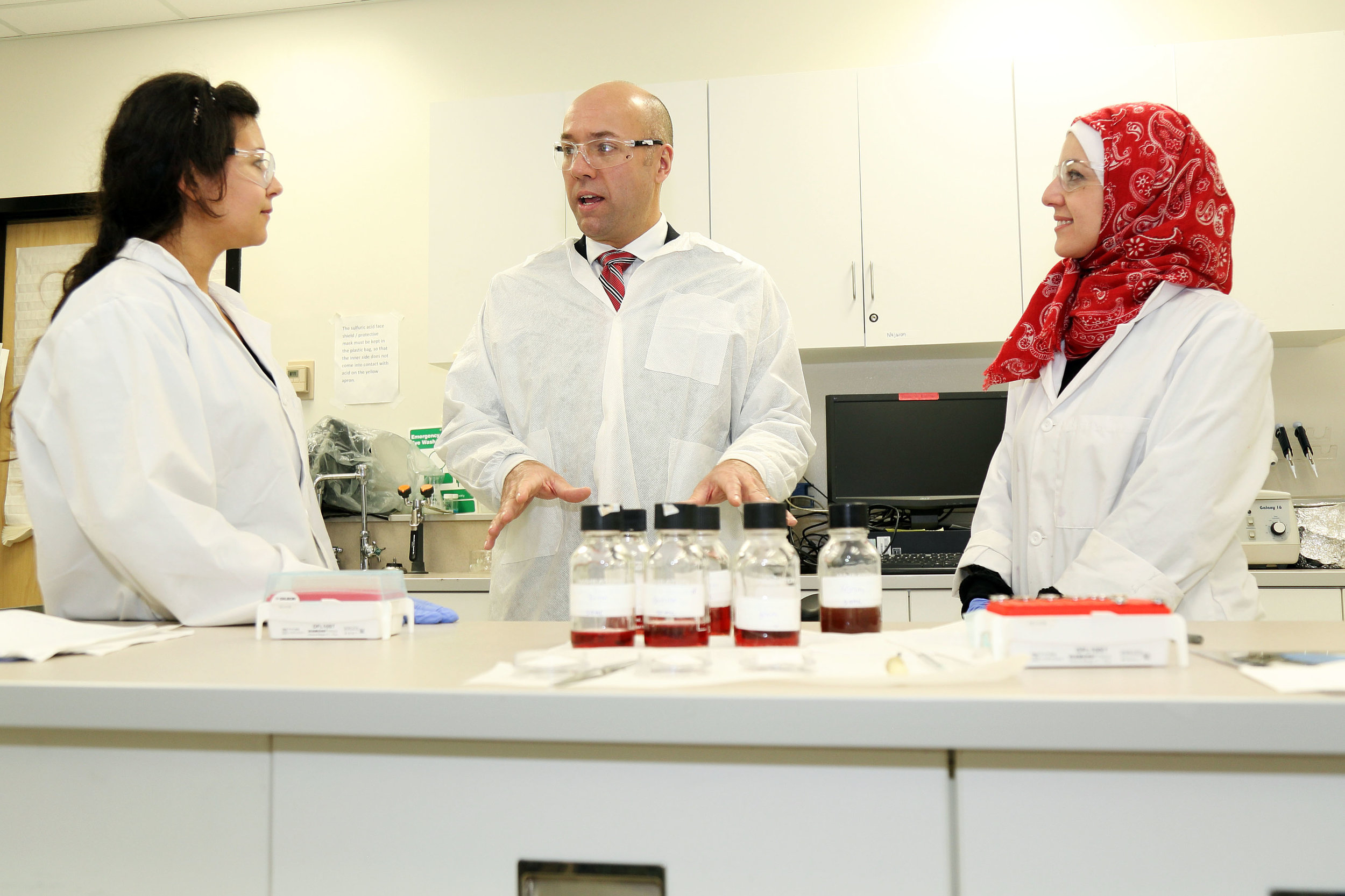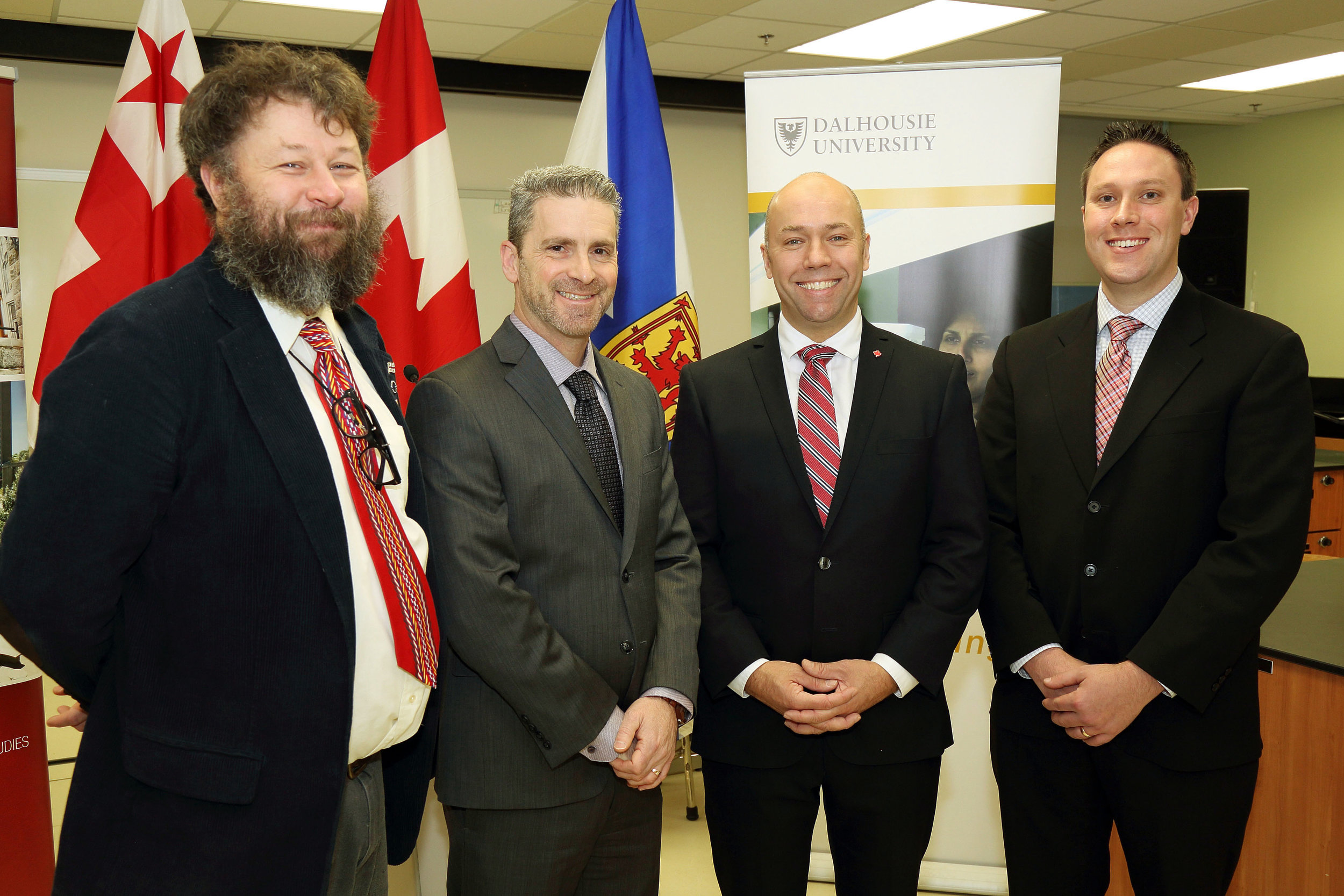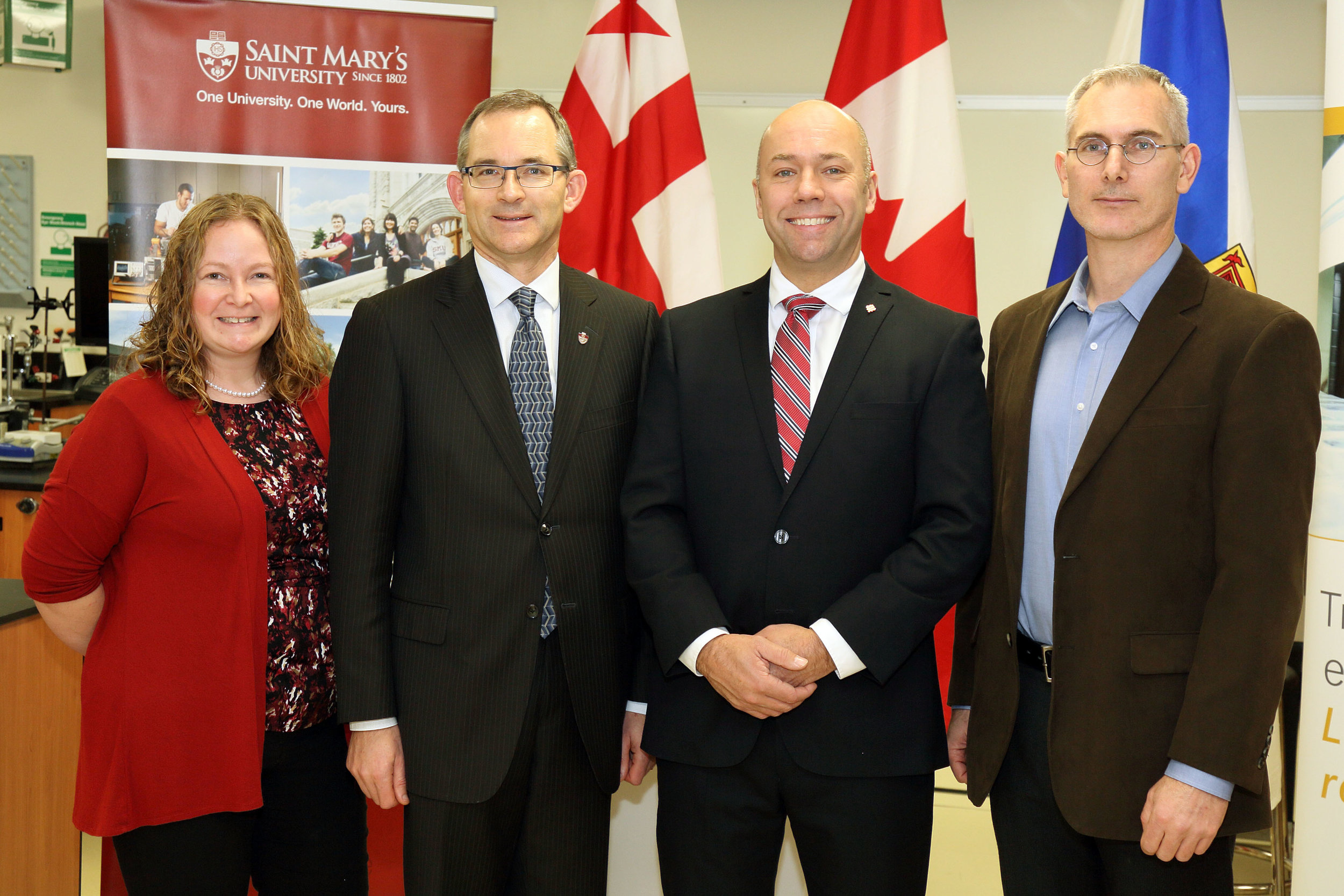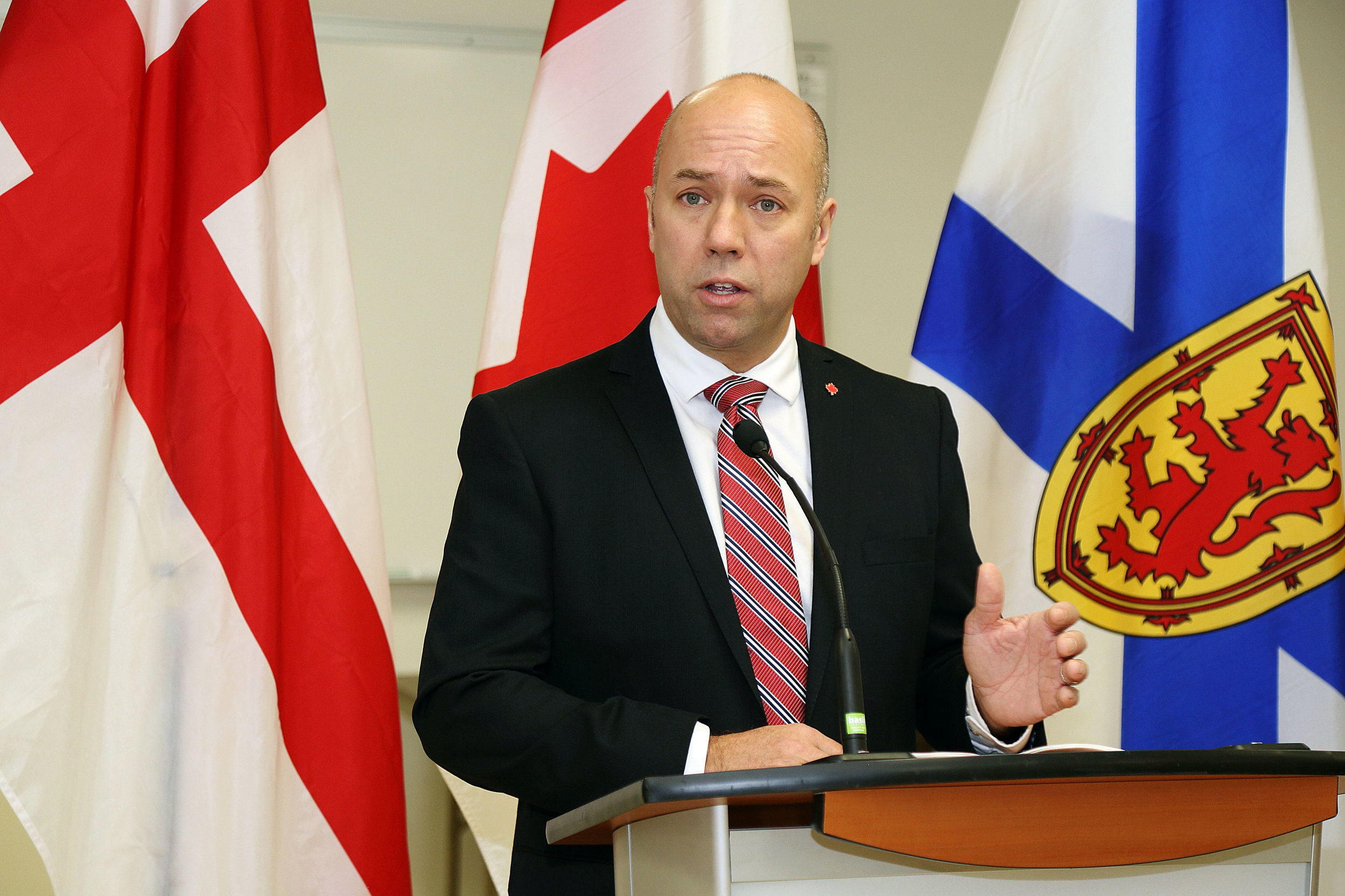Dr. Christa Brosseau, Associate Professor, Department of Chemistry; Dr. Robert Summerby-Murray, Saint Mary’s University President; Andy Filmore, Member of Parliament for Halifax; Dr. Todd Ventura, Associate Professor, Department of Geology
Saint Mary’s University was pleased to welcome Mr. Andy Fillmore, Member of Parliament for Halifax, and representatives from Dalhousie University to the Saint Mary’s campus today to announce new Canada Research Chairs being named to both universities.
The Canada Research Chairs Program supports and attracts the world’s best researchers, in the fields of engineering, and the natural sciences, health sciences, humanities, and social sciences.
“Being named a Canada Research Chair is one of the highest honors that Canadian researchers can achieve,” said Saint Mary’s University President, Dr. Robert Summerby-Murray . “These researchers are at the forefront of their respective fields, and their work embodies the type of innovation that will help strengthen our economy and our society.”
From ensuring nanotechnology is sustainable to improving our understanding of the human microbiome, exploring the impact of nitrogen on different ecosystems, investigating the transformation of organic matter into oil and gas and studying the cultural history of Europe’s “small nations”, these Canada Research Chairs (CRC) are truly making an impact on our world.
Dr. Christa Brosseau – Associate Professor, Department of Chemistry:
Dr. Brosseau is the Canada Research Chair in Sustainable Chemistry and Materials. Dr. Brosseau’s research focuses on sustainable nanotechnology. While nanotechnology has made great strides over the last several decades, the idea of sustainable nanotechnology hasn’t been a focal point. Dr. Brosseau aims to make sure that the future of nanotechnology, whether for human health, renewable energy or other purposes, is a sustainable future.
Dr. Todd Ventura – Associate Professor, Department of Geology:
Dr. Ventura is the Canada Research Chair in Petroleum Systems, Geochemistry and Reservoir Characterization. His research investigates how organic matter deposited at the Earth’s surface becomes transformed into oil and gas once it is buried deep underground. This research will help improve our understanding of what the molecular composition of oil actually is and how that composition changes over time. This has the potential to improve the efficiency of finding oil reserves while minimizing impacts to the environment from its extraction.











